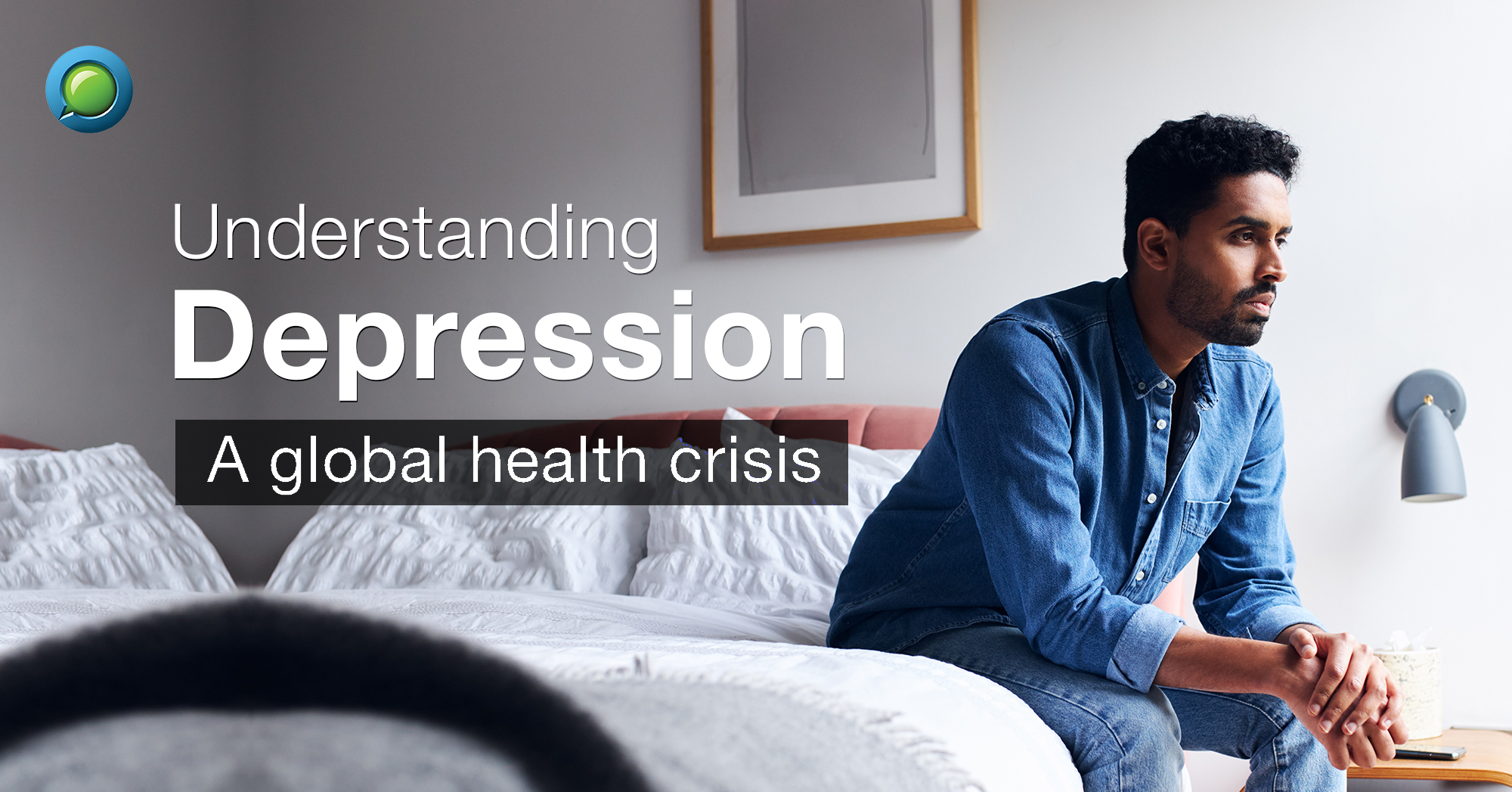Depression- A global health crisis
The state of persistent sadness, continuous low mood over a long period, and intense feeling of hopelessness that affects the overall well-being of an individual is classically characterized as Depression. But sometimes depression comes with a range of such symptoms that it becomes really difficult to identify it and sometimes people themselves try to hide it from others due to the stigma attached to it.
Burden of Depression
Depression is marked as the top cause of disability affecting more than 300 million people worldwide, out of which 56 million are Indians.
The pandemic has taken a huge toll on mental health and continues to do so, making mental health a global health crisis. 1 in 7 Indians have mental health issues and this number is increasing continuously with the majority of them suffering from depression. It’s noteworthy that not only adults suffer from depression. The National Mental Health Survey of India has reported that 3% of India's youth have experienced a major depressive episode.
Who is at higher risk of depression?
Women are more seemingly vulnerable to developing depression than men. [Figure 1]
Apart from the female gender, genetics also play a big role, which is evident from the fact that depression runs in the family, ie if a person has a strong family history then, environmental factors will have a greater impact in contributing to depression.
Low socioeconomic status and financial problems/unemployment can affect the peace of mind, especially when the person is highly vulnerable/anxiety-prone or has low self-esteem. Being a victim of childhood sexual abuse, experiencing domestic violence, and living separately/divorced are also some factors where a person has a higher tendency to lose courage in a stressful situation and become a victim of depression.
Importance and need of EARLY INTERVENTION in Depression
“Shall I tell or not, what will people think”, entangled in the loop of thoughts, and struggling with themselves, Depressed people hide their feelings and then do not seek any help, later on, it becomes late over time making it more difficult to recover.
Early intervention also means identifying the early symptoms of depression so that immediate steps can be taken.
The consequences of ignoring the warning signs of depression can be disastrous which may include
- Increased suicidal tendency: Suicide remains the concerning and leading cause of death in untreated patients with depression, with India accounting for 36.6% of global suicides in women and 24.3% in men. It’s a red flag when someone is talking about killing or harming one's self, calling & saying goodbyes, and giving away prized possessions for no reason.
- Substance use challenges: Excessive smoking, alcohol, and frequent drug use can lead to sour relationships. Involvement in risky behavior [such as reckless driving] or antisocial activities after drinking has been associated with depression, especially in men.
- Increased risk of cardiovascular diseases owing to associated psychological stress that can lead to the development of hypertension, left ventricular hypertrophy, and coronary vasoconstriction.
- Increased risk of hospitalization for severe infections.
What are the Early Warning Signs that need attention?
Sadness, extreme tiredness, persistent intense feelings of hopelessness, and worthlessness are classical signs of depression. It can make you helpless to such an extent that you cannot do any work, eat,sleep or have fun and eventually lose interest in all activities. These signs are obvious and general, but few signs are gender specific such as:
- Men with depression often show irritability, inappropriate anger, controlling/violent/irresponsible behavior, blaming others when things go wrong, and tend to spend lots of time at work/sports [Escapist behavior].
- Women with depression show pessimistic behavior, restlessness, blame themselves, have intense feelings of guilt, indulge in unhealthy eating habits, withdraw themselves/social isolation, and often find it difficult to concentrate or remember things.
What can be done for Depression?
Once identified, depression can be effectively treated with medications, goal-oriented psychotherapy, social support, tender care, desensitization techniques along with lifestyle changes.
Incorporating healthy lifestyle habits such as having a nutritious & balanced diet, getting good sleep, practicing yoga& meditation to keep stress at bay, and setting goals can help to overcome and prevent depression
Don't be afraid to ask for help. It's not the end of the world. Talk to your loved ones and get in touch with our psychiatrist/psychologist @DocOnline for guidance.













